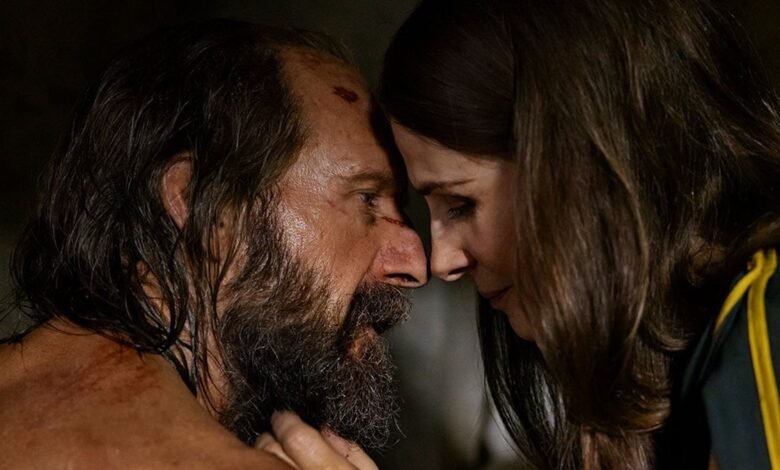‘The Return’ Review: Ralph Fiennes and Juliette Binoche Bring Grace and Gravity to This Ancient Greek Odyssey

When he introduced the world premiere of “The Return” at the Toronto Film Festival on Saturday night, director Uberto Pasolini pointed out that nobody has made a film adaptation of Homer’s epic poem “The Odyssey” since 1955, when Italian director Mario Camerini made a version with Kirk Douglas as Odysseus (using the Roman version of his name, Ulysses). He skipped over a couple of other versions as well as works by Theo Angelopoulos and the Coen brothers (“Ulysses’ Gaze” and “O Brother, Where Art Thou?,” respectively) that borrowed elements from Homer’s tale, but the point remains: One of the first great works of Western literature is not marketable IP these days.
But it’s still a hell of a tale, as “The Return” proves. The film leaves out the first two-thirds of the book, the part that includes the cyclops and the Sirens and the six-headed sea monster and lots of meddling by the gods. Instead, it sticks with the final section in which Odysseus returns to his homeland of Ithaca to find his house filled with suitors trying to claim the hand (and the fortune) of his presumably widowed queen, Penelope.
This is the down-to-earth part of the Odyssey, and Pasolini’s version makes it simultaneously visceral and contemplative. He takes his mythology seriously, and so do composer Rachel Portman and a crew of actors headed by Ralph Fiennes as Odysseus and Juliette Binoche as Penelope. It’s gritty and dirty and eventually smeared with blood, but it takes its time and weighs every word.
You could look back to the last major adaptation of Homer, Wolfgang Peterson’s 2004 hit “Troy,” and say that Brad Pitt had the body to play Achilles. But Fiennes has the body (battered and sinewy) and the voice (resonant and rich) to play Odysseus, which makes it thrilling when the film lets him linger over every syllable.
The adaptation is deliberately selective: Gone is all the divine intervention that sometimes made the human characters pawns in a game being played by the gods. And there’s no talk of all the crazy things that delayed Odysseus’ return from the Trojan War for a decade; instead, he’s a beaten man who washes up on the shore of Ithaca afraid that his wife and son will no longer accept the man he has become after a decade at war and another decade during which his entire crew was killed. (The guy could legitimately claim that gods and monsters did it, but “The Return” doesn’t offer him that way out.)
Ithaca, meanwhile, has been overrun with ill-tempered suitors who terrorize the citizenry and hang around the palace insisting that Penelope acknowledge that Odysseus is dead and choose a new husband. Her grown son Telemachus (Charlie Plummer) is a nuisance to them; the only thing that keeps Telemachus alive is that killing the son would be a very poor move for anyone holding out hopes of marrying the mother.
If you’ve read the book or remember the Cliff’s Notes from high school, you’ll know where this is headed, with Odysseus and Telemachus teaming up to get rid of all the suitors in an extremely dramatic way. The movie definitely takes liberties with a lot of details, but the key to “The Return” isn’t the blow-by-blow action, but the scale and drama of this world and these people.
Fiennes, to what should be the surprise of no one, is magnificent as Odysseus, his face a map of troubles and his voice a virtuoso instrument whether he’s whispering dark details (“We burned [Troy] to the ground and then we drowned the flames in blood”) or unleashing its deep, weathered resonances.
He’s a haunted man; when he’s told the war is a long way off and he should forget it, he shakes his head slowly and says, “It’s everywhere. It’s in everything you touch.”
Binoche, meanwhile, plays a woman accustomed to holding her tongue lest she give too much away, and disgusted by the idea that her only way to avoid her island falling into ruin is to give herself to one of the louts drinking up her husband’s wine and choking off the surrounding villages. But the strain of honoring a husband who she suspects might have abandoned her is clearly fraying her nerves.
The conversations between Odysseus and Penelope, even before she realizes that the wounded veteran begging for scraps in her castle is actually her husband, are slow and deliberate, studded with pauses and measuring each word. If there’s a default mood in “The Return,” it’s somber foreboding, which is intensified both by Portman’s music and by dark, candlelit interiors filled with silhouettes.
The pacing is far from what you’d expect in a Hollywood movie with this much action, which can make the film feel longer than its 116 minutes. But that rich languor and that love of words is earned, and do you really want to tell Ralph Fiennes and Juliette Binoche to hurry up? No. You. Do. Not.







